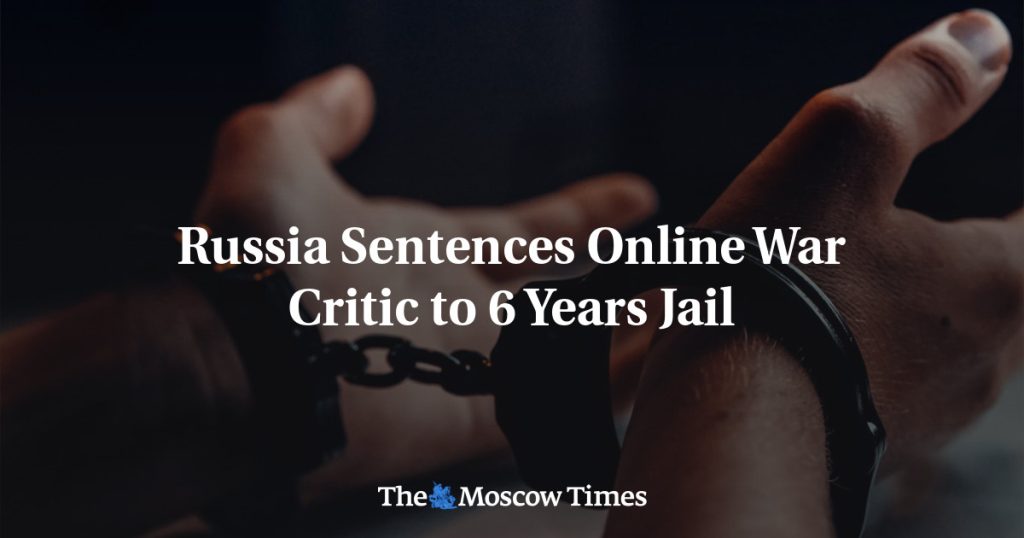A man in Russia has been sentenced to six years in jail for online messages denouncing Russia’s invasion of Ukraine. Nikolai Farafonov, 35, was found guilty of “public incitement to commit terrorist acts” by a military court in Russia’s northern republic of Komi. He had published videos and messages calling for the burning of military recruitment offices, leading to several arson attacks or attempted attacks on such premises. The NGO Memorial referred to Farafonov as a political prisoner and mentioned that he lived in a small town in the region and ran a channel on the Telegram messaging service openly hostile to the conflict.
On his channel, Farafonov referred to Russian soldiers being killed in Ukraine, while also criticizing political repression, pro-Kremlin education in schools, and other local issues. He had been fined in October 2022 for “discrediting” the army after making an online commentary that Memorial said referred to the deaths of Ukrainian children at the point of Russian bayonets. Despite the fine, Farafonov continued to publish critical messages until he was arrested in September for “calls for terrorism.” This incident is part of a larger crackdown by Russian authorities on public criticism of President Vladimir Putin’s attack on Ukraine, which was launched in February 2022.
Thousands of Russians have been fined and hundreds jailed for denouncing Putin’s attack on Ukraine. Farafonov’s case is just one example of the government’s efforts to silence dissenting voices. The prosecution in this case argued that Farafonov’s actions constituted public incitement to commit terrorist acts, leading to his harsh sentence of six years in jail. The fact that he had already been fined for similar offenses did not deter him from continuing to express his opinions online, ultimately leading to his arrest.
NGO Memorial has labeled Farafonov as a political prisoner, highlighting the injustice of his arrest and sentencing. His case illustrates the precarious situation facing individuals in Russia who dare to speak out against the government’s policies, particularly in relation to the conflict in Ukraine. Despite facing legal consequences, Farafonov persisted in sharing his views online, indicating a commitment to speaking truth to power. However, this dedication ultimately resulted in his imprisonment and serves as a warning to others who may be considering speaking out against the government.
The crackdown on dissent in Russia is not limited to individuals like Farafonov. The government’s efforts to silence criticism of its actions in Ukraine extend to a broader campaign to suppress freedom of speech and expression. The use of charges such as “public incitement to commit terrorist acts” is a tool to intimidate and punish those who challenge the official narrative. The sentencing of Farafonov to six years in prison sends a clear message to others who may be tempted to criticize the government publicly. It reinforces the notion that speaking out against the authorities comes with severe consequences and serves as a deterrent to potential dissenters.
Overall, Farafonov’s case is emblematic of the broader trend of repression and censorship in Russia. As the government tightens its grip on public discourse, individuals are increasingly facing persecution for expressing their views. The sentencing of Farafonov for his online messages denouncing the conflict in Ukraine is a stark reminder of the risks associated with speaking out against the regime. Despite the challenges and risks, activists and ordinary citizens in Russia continue to push back against authoritarianism, demonstrating resilience in the face of adversity. Farafonov’s case serves as a cautionary tale while also showcasing the ongoing struggle for freedom of expression in Russia.


